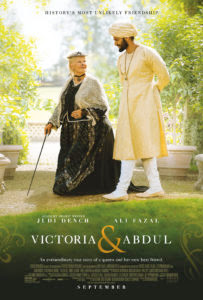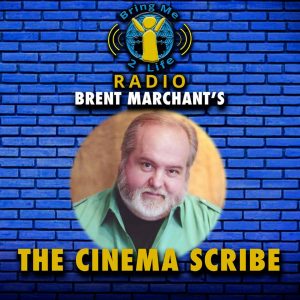
Tuesday, October 31, 2017
Check out Wednesday's Cinema Scribe

Monday, October 30, 2017
A Special Show and a Special Offer
In case you missed last Thursday's special edition of Frankiesense & More radio, which featured the monthly Movies with Meaning segment and a conversation about my new book, Third Real: Conscious Creation Goes Back to the Movies, you can now catch the podcast version by clicking here. And, while you're at it, check out the special offer to get a free PDF excerpt of the book, with details available here. Join me and host Frankie Picasso for some lively movie chat.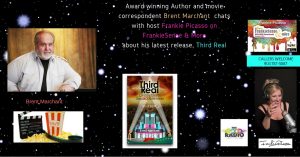
Wednesday, October 25, 2017
On the Radio Thursday
Join host Frankie Picasso and me this Thursday, October 26, at 1 pm ET for the latest edition of Frankiesense & More radio. In addition to this month's regular Movies with Meaning segment, I'll join Frankie for the entire hour to discuss my new book, Third Real: Conscious Creation Goes Back to the Movies. We'll talk about this engaging new title, as well as a number of thoughtful new movie releases. Click here for some spirited movie chat or catch the podcast on demand thereafter.
Tuesday, October 24, 2017
‘Breathe’ inspires us to vanquish our limitations
Imagine being confronted by a life of bed-ridden confinement, unable to move or even to inhale your own life-sustaining breath. Add to that the frustration and despondency brought on by an unfeeling health care system that insists upon regimented institutionalization as the only way to address your condition. And, to make matters worse, you’re young and just beginning what’s supposed to be a happy and fulfilling time with the love of your life. If you can picture that, you have an idea of what it’s like to be the protagonist of the new, fact-based romantic drama, “Breathe.”
In 1958 England, tea broker Robin Cavendish (Andrew Garfield) had just met the woman of his dreams, the fair and beautiful Diana (Claire Foy). Despite Diana’s reputation for being something of a heartbreaker, Robin knew that she would one day become his wife. And Diana, despite her sometimes-fickle nature, felt the same way about her new beau. It truly was love at first sight.
Tea broker Robin Cavendish (Andrew Garfield, left) spends time in the company of the love of his life, Diana (Claire Foy, right), in the new fact-based drama, “Breathe.” Photo by Laurie Sparham, courtesy of Bleecker Street Media and Participant Media.
Before long, Robin and Diana were inseparable, even when he would embark on his travels to the wilds of Kenya in search of new tea stocks. Their African adventures together set the tone for the life adventure they envisioned sharing, one that soon included the addition of child on the way. But, just as life seemed to be growing ever more enriched, Robin was suddenly struck down with polio, the crippling effects of which left him paralyzed and unable to breathe without a respirator. And, despite his youthful vigor, his prognosis was not good – perhaps several months at most, and all of it confined to a hospital bed.
Initially unable to speak and embarrassed by his depleted overall condition, Robin quickly fell into a deep depression, wishing to see no one, including Diana and his newborn son, Jonathan. In fact, he sincerely wanted to die rather than live the way he was, especially since his doctors told him that he’d likely be spending the remainder of his waning days in a hospital ward with other afflicted patients. But, Robin’s despondency notwithstanding, Diana would have none of it. Rather than resign herself to the same kinds of circumstances her husband seemed so ready to embrace, she pointedly asked him what it would take to make him happy so that he would be willing to keep on living. To that, he replied, he simply wanted to go home, a wish that Diana began working on making happen.
When Diana and Robin announced their plans to the medical staff, physicians like the condescending Dr. Entwistle (Jonathan Hyde) labeled their plan foolhardy at best. However, the ever-resourceful Mrs. Cavendish set her mind to bringing her husband home, and Robin soon began leading a comparatively comfortable life in a cozy residential setting.
Once relocated, Robin’s spirits improved markedly, and his condition stabilized. He lasted far longer than the several months initially projected, clearly defying the odds and the experts’ diagnoses. He enjoyed a loving relationship with Diana and had the pleasure of watching Jonathan grow up. And, all the while, he was in the company of many friends, such as his lifelong chum Colin (Edward Speleers), the ever-cheerful, ever-colorful Blacker twins, David and Bloggs (Tom Hollander), and his clever, inventive colleague, Dr. Teddy Hall (Hugh Bonneville), all of whom believed that it was possible for Robin to enjoy a life even fuller than the one he was now leading.
As an amateur inventor and tinkerer, Teddy looked for ways to help make Robin’s life more mobile, an accomplishment he achieved by fashioning a specialized wheelchair fitted with a built-in respirator. With that, Robin was no longer restricted to his bed. He was able to go outside and sit in his garden, as well as take long, leisurely country drives with the family. At one point, he was even able to embark on trips to Spain and Germany. Not bad for someone who once faced permanent confinement.
After being afflicted with polio, Robin Cavendish (Andrew Garfield, center) is surrounded by his loving wife, Diana (Claire Foy, second from left), his son, Jonathan (Harry Marcus, second from right), and his supportive friends, Dr. Teddy Hall (Hugh Bonneville, left) and David Blacker (Tom Hollander, right), in director Andy Serkis’s debut feature, “Breathe.” Photo by David Bloomer, courtesy of Bleecker Street Media and Participant Media.
Robin’s expanded mobility eventually led him to become the face of a new cause, one aimed at promoting more liberated lifestyles for other patients similarly afflicted. With the backing of an enthusiastic physician, Dr. Clement Aitken (Stephen Mangan), and the philanthropic support of a wealthy benefactress, Lady Neville (Diana Rigg), Robin helped secure similar equipment for other severely paralyzed patients, enabling them to enjoy the same kind of freedom he had now been basking in for years. It gave him a purpose, not just for himself, but for others, something that no doubt contributed to the decades-long longevity he experienced after initially becoming infected.
The story of Robin and Diana Cavendish inspiringly illustrates a number of principles at the core of the conscious creation process, the philosophy that maintains we manifest the reality we experience through the power of our thoughts, beliefs and intents. Their odyssey together in many ways serves as a textbook for how to employ them.
First and foremost, for instance, the film shows what it means to push through barriers and defy limitations. As conscious creation maintains that we’re ever evolving, in a constant state of becoming, we’re continually meant to get past the obstacles before us to create innovative solutions to our challenges and materialize new conceptions of existence. And Mr. and Mrs. Cavendish clearly excel at this, both individually and as a couple, as well as with the support, guidance and assistance of their peers. They truly push the envelope, showing what’s possible in the face of conventional thinking that would otherwise hold them back. In doing so, they set quite an example for all to see.
Of course, given that conscious creation makes it possible for us to manifest virtually anything we want, one might legitimately wonder why Robin and Diana would materialize circumstances such as these. However, as is the case with virtually all adversity-driven stories, such as those depicted in films like “Still Alice” (2014), “The Theory of Everything” (2014), “Freeheld” (2015) and “Gleason” (2016), the characters’ reasons behind these self-imposed hardships are their own and not for outsiders, like us, to question. These kinds of conditions are frequently associated with particular life lessons, the kind that we might not be able to learn through other sorts of scenarios. In the case of this picture’s protagonists, for example, it could be that they drew these circumstances to them as a means of engaging in the kind of aforementioned limitation-busting activities at which they became so proficient. That naturally leads us to rhetorically ask, would that have been possible without the challenges they set for themselves?
By setting such an example, Robin and Diana were able to inspire others in myriad ways. For instance, thanks to Robin’s ardent advocacy for the revolutionary mobile equipment developed by his friend Teddy, he gave new hope to his fellow polio patients, most of whom were being warehoused in institutions that provided virtually no quality of life. This becomes particularly apparent during his visit to a German facility for the paralyzed, where he’s appalled to see immobilized patients stacked up in a morgue-like holding facility, all very clinical but wholly impersonal and unfeeling. It prompts Robin to make an impassioned plea to the facility’s director, Dr. Erik Langdorf (Sylvester Groth), to implement a more humane approach to treatment, one that incorporates the mobile technology he’s benefited from for years.
What begins with the hope of a beautiful life together quickly turns challenging for businessman Robin Cavendish (Andrew Garfield, right) and his new wife, Diana (Claire Foy, left), in the fact-based romantic drama, “Breathe.” Photo courtesy of Bleecker Street Media and Participant Media.
By engaging in such fervent, heartfelt promotion for this mission, Robin pursued his own signature brand of value fulfillment, the conscious creation concept aimed at being our best, truest selves for the betterment of ourselves and those around us. By giving voice to a concern that previously had none, he was able to successfully draw attention to it to help improve the life of others who faced the same circumstances as he did. But, then, that shouldn’t come as much of a surprise, given that he himself was the beneficiary of others practicing their value fulfillment, namely, the efforts of his family and friends to make a better quality of life for him. His subsequent efforts were simply his way of returning the favor and paying it forward to advance the condition of others.
The efforts of others to aid Robin also demonstrate the power inherent in acts of co-creation. When we pool our resources and ingenuity, we’re often able to generate truly remarkable results, as evidenced here. By working with Robin – and by Robin summoning to him the right mix of willing and committed collaborators – this collective band of co-creators came together to yield outcomes through which everybody won. And, in turn, such efforts led to the work Robin would subsequently tackle, spiraling the co-creative initiative to an entirely new level and to a grateful new constituency.
Most of all, however, “Breathe” adeptly shows what can stem from the power of love, a potent emotion that can significantly fuel the underlying components of the conscious creation process. Were it not for the love Robin and Diana shared for one another, this story might have easily led to a very different outcome. If Robin had continued to believe that he had nothing left to live for, he may have well fulfilled his physicians’ prognostications and passed on not long after being afflicted. But, because the fair Mrs. Cavendish gave her spouse a reason to live, she helped him change his beliefs and prevailing mindset, an adjustment that prompted more than two decades of additional life, not to mention an existence that proved to be immensely fulfilling personally and as a proponent for patient rights and dignity. That’s quite an accomplishment for someone otherwise immobilized.
From the foregoing, it’s apparent the film packs quite an inspirational punch, backed by a wealth of valuable metaphysical insights. However, while “Breathe” is certainly noble and sincere in its intents, this somewhat overlong offering regrettably falls prey to the traps of schmaltz, manipulation and formula (at times bordering on cliché, especially in its soundtrack and cinematography). Admittedly, the film does tend to get better as it goes along (save for its drawn-out concluding segment) and features capable performances by Garfield and Foy, who clearly make this material look better than it really is. However, despite these strengths, much of the film seems rather familiar and plays more like a made-for-TV movie than a theatrical release (and one with precious little back story to boot). You’ll certainly come away from director Andy Serkis’s debut outing feeling inspired and uplifted, but don’t be surprised if you feel just a little cinematically unfulfilled by this one.
Nevertheless, when faced with challenges laden with seemingly insurmountable limitations, a little inspiration can go a long way in helping us get past such barriers. If you doubt that, consider what Robin and Diana were able to achieve with what they had to work with. But, then again, given the vast store of resources available through the realm of possible beliefs, it should naturally follow that we can accomplish great things when we set our minds to the task. In fact, the results just might take your breath away.
Copyright © 2017, by Brent Marchant. All rights reserved.
'Third Real' Now on Popular Book Lovers' Sites!
I'm pleased to announce that my new book, Third Real: Conscious Creation Goes Back to the Movies, is now being featured on three book lovers' web sites, GoodReads, BookDaily and LibraryThing. The specific features on these specialized social media sites vary, but they allow readers to do such things as post reviews, share titles with fellow readers, launch discussions and ask questions of the author, yours truly. In addition to the book pages on these sites, you can also visit my author pages on GoodReads, BookDaily and LibraryThing, all of which feature a detailed profile and descriptions of all of my titles. Additional information along these lines can also be found on my Amazon Author Central page, which features my background profile and Amazon links to purchase each of my titles in print and ebook formats. Happy reading!



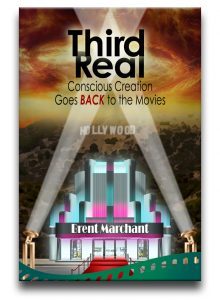
This Week in Movies with Meaning
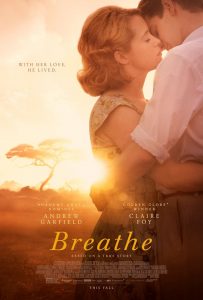
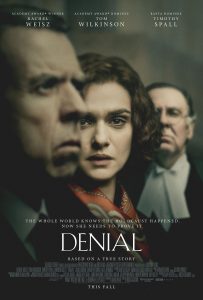


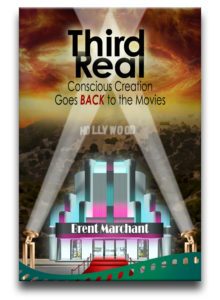
Sunday, October 22, 2017
'Third Real' Featured on Pop Expresso


Thursday, October 19, 2017
It's Official: 'Third Real' Is Here!
I'm pleased to officially announce the release of my latest book, Third Real: Conscious Creation Goes Back to the Movies. This title picks up where its two predecessors left off, exploring the finer points of the conscious creation process (also known as the law of attraction) as illustrated through film. Third Real is available in a print version from Amazon, Barnes & Noble and the CreateSpace eStore, with ebook versions coming soon from Amazon Kindle, Nook, iTunes and Kobo Books. In the meantime, to find out more, visit my web site's Third Real page, where you can get all the details, as well as a free downloadable PDF excerpt that includes the front and back matter and the first three chapters! Happy reading and, as always, enjoy the show that is life!
Tuesday, October 17, 2017
Catch This Week's Cinema Scribe

Monday, October 16, 2017
Tune in for Smart Women Talk
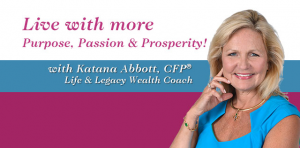
Saturday, October 14, 2017
Check out Bring Me 2 Life Radio
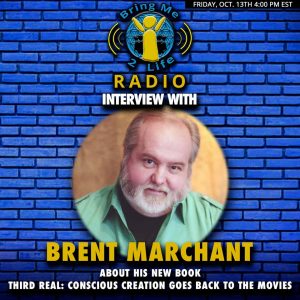
Thursday, October 12, 2017
Who Wants a Freebie?


Check out New Consciousness Review Radio


Wednesday, October 11, 2017
‘Lucky’ ruminates on the meaning of life
The longer we live, the luckier we’re supposed to believe we are, right? But what if that long life is devoid of meaning? In those cases, it seems like we just keep going on and on but without purpose or a sense of what life’s all about. Under those conditions, we have to ask ourselves, is that enough? Does the act of merely biding our time suffice? And, if that’s what’s really happening to us, will we be satisfied with that when we finally reach the end? Those are among the challenges posed to a 90-year-old atheist in the meditative new character study, “Lucky.”
Living life as a recluse in a small town in the Arizona desert is almost as barren as the surrounding landscape. So it is with Lucky (Harry Dean Stanton), a retired World War II Navy cook who has outlived nearly everyone he has ever known. By all rights, outsiders might wonder how he’s managed to live so long, too, given his nearly incessant chain smoking and routine alcohol use. It’s a complete mystery to his doctor (Ed Begley Jr.), who tells the nonagenarian that, by most measures, he should have keeled over a long time ago. Yet somehow Lucky keeps going, probably thanks to his robust walking and yoga regimens, practices that seem to keep him surprisingly healthy for his age. Some would say that’s what makes Lucky lucky.
Ninety-year-old atheist Lucky (Harry Dean Stanton) comes face to face with the meaning of life in the thoughtful new cinematic meditation, “Lucky.” Photo courtesy of Magnolia Pictures.
A wrinkle occurs, however, when a minor unexpected, unexplained health incident strikes Lucky, leaving him and his physician perplexed. With no apparent cause for the episode, Lucky is left to figure out what caused it. But, as he gradually comes to discover, what’s more important than its cause is why it occurred in the first place.
In the wake of this incident, Lucky realizes that he must come to grips with the meaning of life, especially now that its end may be nearing, a preview of which the health scare provided. But, as someone who has long put off ruminating on such issues, Lucky is unsure of how to proceed. What should he look for? Who should he turn to for advice and guidance? And will he recognize the answer when he finds it? That may be rather challenging, given that, as a longtime atheist whose general outlook on life is somewhat dour, he seems to hold out little hope for happiness and salvation, both for himself and mankind in general.
Through a series of everyday encounters that prove to be deceptively insightful, Lucky begins to see glimmers of the insights he’s been looking for. These include conversations with the jovial owner of a local diner (Barry Shabaka Henley) and his kindly waitress (Yvonne Huff); a chance meeting with a fellow World War II vet (Tom Skerritt); frequent interactions with the staff and patrons of a local nightspot (Beth Grant, Hugo Armstrong, James Darren); two intense confrontations with an estate planning lawyer (Ron Livingston); a birthday celebration with a convenience store clerk (Bertila Damas) and her sweet mother (Ana Mercedes); and several dialogues with an aging gentleman obsessed with the disappearance of his elderly pet tortoise (David Lynch). These seemingly innocuous encounters lead to personal revelations that shed light on the protagonist’s mindset – and what he might want to do with it as he heads into his own future.
Amazed at his 90-year-old patient’s remarkable health, Dr. Christian Needler (Ed Begley Jr., right) discusses the regimens employed by Lucky (Harry Dean Stanton, left), a spry but reclusive retired military vet, in director John Carroll Lynch’s debut feature, “Lucky.” Photo courtesy of Magnolia Pictures.
Lucky is indeed fortunate to have been given the gift of time to sort things out in his life. And, considering that he’s put off doing so for so long, he’s lucky that he has still has the opportunity to figure out matters while he still has the chance. It’s something many of us never get around to, but, fortunately, Lucky seems to be getting it in under the wire. And, as his situation thus demonstrates, better late than never.
As Lucky embarks on this personal journey, he makes his first forays into the subject of conscious creation, the philosophy maintains we manifest the reality we experience through the power of our thoughts, beliefs and intents. Like so many of us, Lucky appears to have spent much of his life drifting through it, engaged in its experiences but not really making much of an effort to understand it. He’s observed his existence rather superficially, looking at its surface qualities but never probing what lies underneath them or how they have come into being. By focusing his attention on these attributes, he doesn’t see beyond what’s present at purely face value. And, even though he’s managed to make it through much of his life relatively unscathed (as his nickname suggests), he’s nevertheless seen his share of others’ pain, suffering and frustration, not to mention the scams that people often unscrupulously perpetrate against others. It’s no wonder that his outlook is rather bleak, and it probably accounts for his belief that divine grace is nothing more than a myth.
However, given his present circumstances, Lucky now finds himself with an incentive to change direction. He has created conditions, even if unknowingly, that enable him to address the questions he’s long been putting off. And it proves to be an eye-opener, leading Lucky to discover aspects about life – and existence – that he never before considered. He may be coming to these realizations rather late in the game, but, again, better that he get the lesson than not.
In his search for the meaning of life, 90-year-old Lucky (Harry Dean Stanton, right) discusses the subject with his friend, Howard (David Lynch. Left), whose primary focus is on the whereabouts of his missing pet tortoise, in “Lucky.” Photo courtesy of Magnolia Pictures.
To a certain degree, this probably helps to account for his otherwise-inexplicable longevity. On a subconscious level, Lucky may well have understood that he would one day have to examine these big questions of life, reluctant though he may have been to do so. To compensate for this, he thus manifested the gift of time to himself, enabling him to continue living until the time when he was finally ready to take on this task. In this regard, he was practicing his own form of conscious creation without even realizing it, giving himself what he needed until he was prepared to tackle the lesson he knew he would eventually have to address. This represents an excellent example of using this philosophy in a highly practical way, one that effectively gets us what we need when we need it and in a generally inoffensive way at that.
Of course, with his personal odometer passing the 90-mile mark, Lucky also likely realized – again subconsciously – that he needed to get down to business on his introspective odyssey. And that’s where the manifestation of the health scare comes into play. It’s a self-inflicted psychic nudge to shake him out of his longstanding complacency, to finally get serious about what he has long ignored. The episode itself was nothing dire or life-threatening, but it was sufficiently noticeable enough to grab his attention and set him down the path he subsequently pursues. This is another example of Lucky’s blossoming conscious creation skills, the manifestation of a springboard event that pushes him to look at his life more intently and more profoundly than he probably ever has in his 90 years on earth. His experience thus proves that it’s never too late to start something new – and that indeed is possible to teach an old dog new tricks.
A tense confrontation between a 90-year-old atheist, Lucky (Harry Dean Stanton, left), and an estate planning lawyer, Bob (Ron Livingston, right), leads to some surprising insights for the searching nonagenarian in the thoughtful new cinematic meditation, “Lucky.” Photo courtesy of Magnolia Pictures.
Though sometimes a little too cryptic for its own good, this otherwise-reflective meditation on life, existence, mortality and human relations provides viewers with much to ponder about the state of one’s reality and how it’s shaped. With an excellent, career-topping performance by the late Harry Dean Stanton, coupled with a strong supporting ensemble, this quiet, low-key debut feature from actor-director John Carroll Lynch explores the meaning of life and the secrets to help make it fulfilling, both while we’re here and as we’re about to make our ultimate transition. Like the circle of life so aptly addressed in this offering, “Lucky” fittingly represents a promising first effort from a filmmaking newcomer and the crowning achievement of a veteran performer’s repertoire, all wrapped up in one thoughtful, beautifully filmed package.
Taking time to take stock of our existence, even when the clock is about to get us, is always a worthwhile pursuit. And, like the hero of this quiet drama, should we find the answers we seek, we, too, could readily consider ourselves lucky.
Copyright © 2017, by Brent Marchant. All rights reserved.
Tuesday, October 10, 2017
‘Blade Runner 2049’ explores what it means to be human
“Blade Runner 2049” (2017). Cast: Ryan Gosling, Harrison Ford, Robin Wright, Jared Leto, Ana de Armas, Sylvia Hoeks, Carla Juri, Sean Young, Edward James Olmos, Hiam Abbass, Lennie James, Barkhad Abdi, Dave Bautista, Mackenzie Davis, Loren Peta. Director: Denis Villeneuve. Screenplay: Hampton Fancher and Michael Green. Story: Hampton Fancher. Book Source: Philip K. Dick, Do Androids Dream of Electric Sheep?. Web site. Trailer.
Our love of freedom is undeniable. But, if we consider it so important, then why do we continue to shackle ourselves and our peers to various forms of enslavement? Some of these permutations may not be readily obvious, but their impact invariably serves that very purpose. And, when we imbue our existence with elements reflective of the foregoing, we have to ask ourselves what kind of reality are we manifesting and what does it really mean to be “human” (even if we dress up their associated manifestations in seemingly palatable packaging)? Those are among the questions raised in the long-awaited (and long-overdue) sequel to a legendary 1982 sci-fi classic, “Blade Runner 2049.”
Set 30 years after its predecessor, “Blade Runner 2049” continues the story begun in its forerunner in which renegade artificial life forms known as “replicants” are “retired” by special police forces, known as “blade runners,” before they can wreak havoc. Designed as servants to their human masters, replicants have long been known to become dangerous and unpredictable as their preset life-spans near an end, despite measures aimed at ameliorating such tendencies. And, ironically, those charged with carrying out the retiring these days are themselves artificial life forms whose stability has been improved upon compared to older models.
In the world of 2049, a time in which prevailing conditions have declined even further from the dystopian conditions present in this story’s predecessor, LAPD blade runner “K” (Ryan Gosling) is charged with retiring an aging replicant (Dave Bautista). In doing so, however, he stumbles upon a mystery – one involving the discovery of an ossuary buried on his target’s property. Under the guidance of his superior officer (Robin Wright), K launches an investigation with potentially staggering implications, including the fate of his fellow artificial life forms, as well as the future of humanity itself.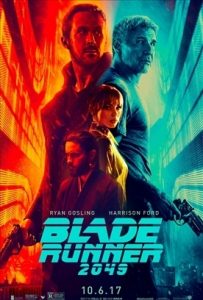
To say more would reveal too much of the plot, suffice it to say that K’s investigation brings him face to face with a variety of issues, including his own origins, the meaning of existence, the role of memory in our lives, our treatment of others and the impetus to rise to our own greatness. And, as he proceeds through this journey of discovery, K encounters an array of intriguing characters, including the head of the corporation that manufactures replicants (Jared Leto) and his trusty but cunning aide (Sylvia Hoeks), a Fagin-esque child slave dealer (Lennie James), an artificial memory programmer (Carla Juri), the leader of an emerging replicant rebellion (Hiam Abbass), and a pair of blade runners from the past (Harrison Ford, Edward James Olmos). What K ultimately uncovers will prove startling, with ramifications beyond imagination.
Like its predecessor, “Blade Runner 2049” explores what it means to be “human,” be it in a natural or artificial form. Is it governed by biology or technology, or is it determined by some other factor, such as consciousness? In light of that, then, is it possible that one form is superior to the other, or is it merely a case of a master-slave relationship? Do the distinctions matter, or are they simply different expressions of an identical underlying principle that just takes different paths to manifestation? Given these considerations, the lines between what many of us might deem distinguishable suddenly become blurred and seem far less important. What does matter, however, is how these materializations arise in the first place, and that’s where the practice of conscious creation comes into play, the philosophy that maintains we manifest the reality we experience through the power of our thoughts, beliefs and intents.
From what takes place here, it’s apparent that humans and replicants both possess consciousness and form beliefs about the nature of their existence. How they each view their reality, however, differs markedly. Natural-born humans see themselves as superior, an outlook that they believe justifies their right to subjugate their artificial counterparts. But, if replicants possess essentially the same cognitive abilities as their self-described masters, is their suppression acceptable? Can we realistically say, as freedom-loving humans, that it’s proper to oppress our manufactured cousins by subjecting them to degrading tasks and imbuing them with traits that constrain their ability to exist and grow? Is that what being “human” is all about?
Such issues crop up in multiple contexts in the narrative of “Blade Runner 2049.” No matter which one gets addressed, these questions repeatedly arise and demand attention, and at the heart of all of them are the beliefs that birth these conditions in the first place. As replicants increasingly grow into their sense of consciousness, as increasingly sentient beings they seek to be able to engage in the same kinds of activities – and to posses the same fundamental rights – as their biological makers. And, if we truly claim to be human, how can we realistically deny them such opportunities? If we do, then we’re clearly something other than what we contend to be.
One of the ways in which this is apparent among the replicants is in their desire to grow and evolve, to push past limitations and become more than they have typically known themselves to be. This is very much in line with the basic premises of conscious creation, which maintain that we’re all intended to exceed the boundaries that define us and to pursue our fundamental birthright that we’re all in a constant state of becoming. They thus seek to engage in some of the most integral activities that define us as human beings.
Aspirations like this probably seem reasonable to the rational and fair-minded among us. But, for those who feel they stand something to lose – such as the perpetuation of a sense of superiority and inflated self-importance – these kinds of ambitions might seem inherently threatening, a challenge to their claim of self-avowed entitlement. Under conditions like this, then, is it any surprise that tensions and conflicts would arise?
What’s even more unsettling is when the oppressed begin to show signs of becoming oppressors themselves. However, if they learn the ways of their tormentors (and adopt beliefs comparable to those who’ve historically bullied their creations), it’s only natural that they might be tempted to mimic the ways of their masters, inflicting on their peers the same kind of treatment to which they’ve been subjected.
Scenarios like this thus illustrate the importance of the role responsibility plays in the conscious creation process. When we engage in a particular type of activity or seek to create a particular outcome, the results carry consequences, some beneficial, others questionable. The objectionable ramifications are often bad enough in themselves, but, when the impressionable begin to emulate them, we leave a legacy that’s doubly troubling. Again, if we contend we’re beings who ascribe to principles that make us human, we must carefully consider our perspectives and the intentions underlying them. With a lack of foresight, there’s no telling what might ultimately manifest.
In many ways, “Blade Runner 2049” is a significant cautionary tale to us all, with important messages on multiple levels, advice we’d be wise to consider in terms of how we treat one another and what we should demand to expect for ourselves. Should we ignore these warnings, though, we may well put ourselves on the path to the kind of future depicted here. Is that what we really want? If not, we’d better pay attention.
Stylistically beautiful and imaginative, impeccably well acted, and incredibly intelligent in its narrative, “Blade Runner 2049” hits many of the right notes right on the head. It’s especially impressive that the film does not place an overreliance on special effects or action sequences to carry the story. Major props go to Gosling, Ford, Wright and Leto for their outstanding performances, some of which are easily award-worthy.
However, despite these many strengths, a few of the picture’s elements feel forced and decidedly off. Several unduly intrusive subplots and narrative twists needlessly dilute the main story, impinging on the main thrust of the film. Certain elements also seem deliberately aimed at setting up a sequel, with questions left decidedly unresolved. And, with a runtime of 2:45, the film easily could have used some judicious editing. Director Denis Villeneuve’s effort is so well executed in so many ways that it’s unfortunate these shortcomings keep this offering from achieving the true cinematic greatness it otherwise could have attained.
With all that said, however, “Blade Runner 2049” is still worthwhile viewing. If we truly hope to grow into an enlightened and hopeful future – one far removed from the world depicted here – we need to take a good, hard look at what we believe makes us human and start living up to it. We’re at a critical juncture in our evolution at the moment, and we could easily go one way or another. Let’s hope we draw from the messages of this film to help us make the right decision.
Copyright © 2017, by Brent Marchant. All rights reserved.
Monday, October 9, 2017
This Week in Movies with Meaning
Reviews of "Lucky," "Blade Runner 2049" and "Life, Animated," as well as book, web site and radio show previews, are all in the latest Movies with Meaning post on the web site of The Good Radio Network, available by clicking here.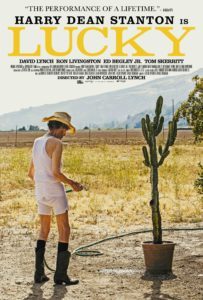
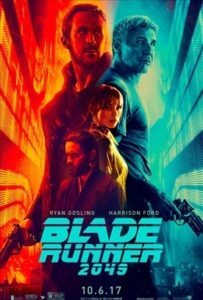
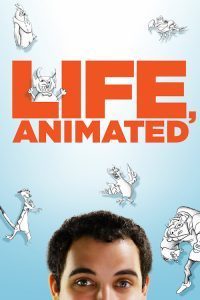



Thursday, October 5, 2017
It's Here! The New BrentMarchant.com!
Please note also that this Blog will be migrating to the new site in the near future, available by clicking here. This page will remain up during the transition period, and all of the existing posts on this site have been incorporated into the archives of the new site. For more information about this or any other site features, free free to email me at info@brentmarchant.com.
My sincere thanks to my webmaster, Rob Kruss of Bear Creek Apps & Media, for a great job and a beautiful design. Here's hoping everyone enjoys the new site!
Wednesday, October 4, 2017
On the Radio Today
Tuesday, October 3, 2017
‘Victoria and Abdul’ celebrates the power and beauty of friendship
Friendships are one of the most precious, enjoyable and special elements of life. They’re especially prized when they take on magical qualities, those that involve acquaintances who are seemingly unlikely, perhaps even mismatched. So it was when a humble Indian servant met a powerful but lonely, aging monarch trapped by the rigidity and responsibility of her title, a fable-like tale depicted in the new biographical offering, “Victoria and Abdul.”
When Abdul Karim (Ali Fazal), a clerk at a local prison in Agra, India, is unexpectedly called upon to present a ceremonial coin to long-serving Queen Victoria of England (Judi Dench), he’s both intimidated and overwhelmed at the prospect. Having been chosen largely because he meets the physical requirements dictated by royal protocol, he’s plucked out of his civil servant job and whisked off to London with his new friend and cohort, Mohammed (Adeel Akhtar), for what is supposed to be a short trip and an even shorter ceremony.
In preparation for his task, Abdul is rigorously schooled in what’s expected of him, most notably what he should and should not do. In particular, he’s repeatedly advised never to make eye contact with Her Majesty. However, when the two meet – and the unthinkable serendipitous gaze transpires – a connection is made, one that blossoms into a solid bond of familiarity and, eventually, friendship.
As the relationship between Abdul and Victoria unfolds, she’s captivated by his wisdom and charm. He teaches her things about life and culture in his homeland that she never knew – quite an irony given that, in addition to being Queen, she also bears the title of Empress of India, a land she rules but has never visited. In short order, Abdul begins teaching Victoria about the Koran and the linguistics of Urdu, among other subjects, all of which fascinate her. And, as a consequence, Abdul quickly becomes one of the Queen’s most trusted confidantes.
Victoria’s acquaintance with Abdul involves more than just being a student of subcontinent culture. He also provides good company, something she craves, given the demands of her title, the incessant obsequious posturing of her family and staff, and her profound loneliness. Having outlived the two great loves of her life, as well as many others who were special to her, she feels alone, and Abdul fills a huge void in her day-to-day existence.
Long-reigning monarch Queen Victoria of England (Judi Dench, left) strikes up an unlikely friendship with an Indian servant, Abdul Karim (Ali Fazal, right), in director Stephen Frears’s delightful new historical release, “Victoria and Abdul.” Photo by Peter Mountain, courtesy of Focus Features.
However, despite Victoria’s comfort with her new friend, others don’t share her sentiments, most notably her eldest son and heir apparent, Bertie, Prince of Wales (Eddie Izzard), Prime Minister Lord Salisbury (Michael Gambon), and members of the royal household, including chief of staff Sir Henry Ponsonby (Tim Pigott-Smith), primary physician Dr. Reid (Paul Higgins), and house matrons Lady Churchill (Olivia Williams) and Miss Phipps (Fenella Woolgar). All of them look down upon the “unseemly” commoner, convinced that he’s gaining too much influence with Her Majesty. They fear for their standing with the Queen, but they also express concern that a foreigner – and a Muslim one at that – may be somehow trying to co-opt the leader of the British Empire and the Church of England. They’re convinced that something must be done – before it’s too late. However, they also underestimate the power of their adversary – and I’m not talking about Abdul.
In light of this (and many other instances, both on- and off-screen), there’s no denying that Victoria was a formidable woman, one fully comfortable in her own skin, as well as her own sense of personal empowerment. Having been the world’s longest-serving monarch at the time, with roughly a billion citizens under her charge, Victoria was clearly in her element when it came to her circumstances. She wielded her power confidently and had grown completely comfortable to getting her way.
This is undeniable proof of someone in command of her conscious creation skills, the means by which we manifest the reality we experience through the power of our thoughts, beliefs and intents. Even if Victoria had never heard the term or studied the philosophy, she was nevertheless a natural at it, as evidenced by her impressive accomplishments both on and off the throne.
Yet, even with all her aptitude at this, Victoria still faced her share of challenges, perhaps to test herself to keep her conscious creation skills in top form. For example, she routinely drew to herself circumstances where she had assorted cronies nipping at her heels, proposing schemes and attempting at manipulate her decisions in ways that served their own positions while claiming that they were merely making recommendations in her best interests. For her part, though, Victoria readily saw through these ruses aimed at undermining her authority and diluting her power and never hesitated to dress down the upstarts behind such ploys. She firmly held onto her personal power whenever it was challenged. Such discernment skills proved a saving grace on many an occasion and made her a more effective conscious creator in the long run.
Bertie, Prince of Wales (Eddie Izzard), heir apparent to the English throne, seethes over the profound friendship between his mother the queen and a commoner in the entertaining new comedy-drama, “Victoria and Abdul.” Photo by Peter Mountain, courtesy of Focus Features.
This became particularly problematic for Victoria when it came to her personal life. One could argue that such scenarios are understandable in matters of state, but, when it came to unofficial capacities, that was something clearly in her own interest and control, and those who attempted to interfere with it did so at their peril. When the royal family and members of the household staff began to question Her Majesty’s friendship with Abdul, for example, Victoria never hesitated to rise to the occasion to slap them back and assert her own discretion. But, then, given her effectiveness as a conscious creator, she had the power and conviction of her beliefs behind her to realize the outcomes she chose for herself.
Such capabilities even went into the creation of her relationship with Abdul in the first place. As someone who was constantly beset by those pushing agendas and seeking to advance their own circumstances, and as someone who lost so many whom she so dearly loved, Victoria was lonely and craved the company of someone authentic. That’s where Abdul came into play, and, fortunately for the Queen, she managed to forge the beliefs that successfully drew someone like him into her life. He was just what she needed, and she relished the time she spent in his company.
Whether or not Victoria knew about conscious creation, it’s interesting to note that, despite her seemingly rigid, unfeeling exterior, she had a strong interest in spiritual and metaphysical matters. This is apparent through her success at drawing Abdul into her life. As someone who was well-versed spiritually, Abdul introduced Victoria to religious concepts she had never before considered, broadening both her worldview and that of the wider world of reality. For someone who was responsible for leading one of the planet’s largest religious institutions, it was no doubt in her best interests to keep an open mind about all things spiritual to rule such an organization effectively – even if others didn’t share the same view. Abdul provided the perfect mentorship, and she never hesitated to avail herself of his wisdom.
For his part, Abdul obviously had an impressive command over his conscious creation skills, too. As someone who firmly believed in being of service to others, he manifested circumstances where he could fulfill this mission in a grand way and by someone who sincerely appreciated his efforts. That’s quite a creation as well, one that we should all hope to emulate.
In spite of the many pressures placed upon them, the Queen and her youthful mentor collectively materialized what many would see as an enviable friendship. It had an undeniable harmony and intimacy associated with it, qualities that successfully helped it withstand all attempts at trying to undermine it. Even during times when the bond was threatened – sometimes with seemingly credible evidence worthy of raising legitimate suspicion – the connection managed to endure, thanks in large part to the underlying beliefs that manifested it in the first place. Now that’s the test of a real relationship and what it truly means to call someone “friend.”
A colorful pudding served up by footman Abdul Karim (Ali Fazal, center) brings joy to aging monarch Queen Victoria of England (Judi Dench, left) and consternation to royal head of household Sir Henry Ponsonby (Tim Piggott-Smith, right) in “Victoria and Abdul.” Photo by Peter Mountain, courtesy of Focus Features.
Though somewhat slight in substance and likely tinged with more than a little present-day political correctness, “Victoria and Abdul” nevertheless serves up an eminently entertaining story about the forging of a bond between unlikely companions. Director Stephen Frears’s breezy, endearing tale features top-shelf production values and gorgeous cinematography, capped off by delightful portrayals by Dench and Fazal in the title roles. It makes for a package that’s sweet, funny and thoroughly enjoyable, even if a bit suspect historically speaking.
All too often we take friendships for granted, not fully appreciating what they mean to us and how truly valuable they really are. That’s sad, especially when we see those who desperately reach out to forge such connections when they’re absent. Fortunately, we have the example of this improbable duo to help show us the way. Should we follow their lead, we just might find ourselves sufficiently amused.
Copyright © 2017, by Brent Marchant. All rights reserved.














